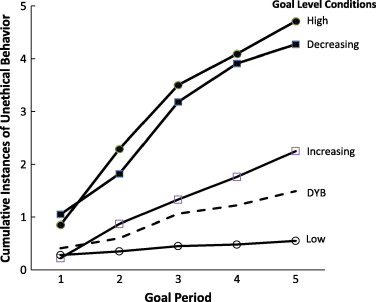When Goals Are Counterproductive: The Effects of Violation of a Behavioral Goal on Subsequent Performance
Keywords: Goals, Failing, Ongoing Goal, Behaviour, Success.
A considerable body of research supports the idea that individuals who set behavioral goals perform better than others who set no goals. In this article, we propose that in addition to the positive effects, goals may also have a counterproductive effect. Specifically, we propose that violating one’s goal may cause a deterioration of subsequent performance as compared to individuals who have no goals. When the violation of one’s goal is coded as a failure, it can result in demotivation, negative emotion, and consequently a poorer performance. We report two experiments that demonstrate the counterproductive effects of goals and discuss potential moderators of this effect along with several possible process explanations
DILIP SOMAN AMAR CHEEMA :The author is from Rotman School of Management, University of Toronto. The author is from John M. Olin

